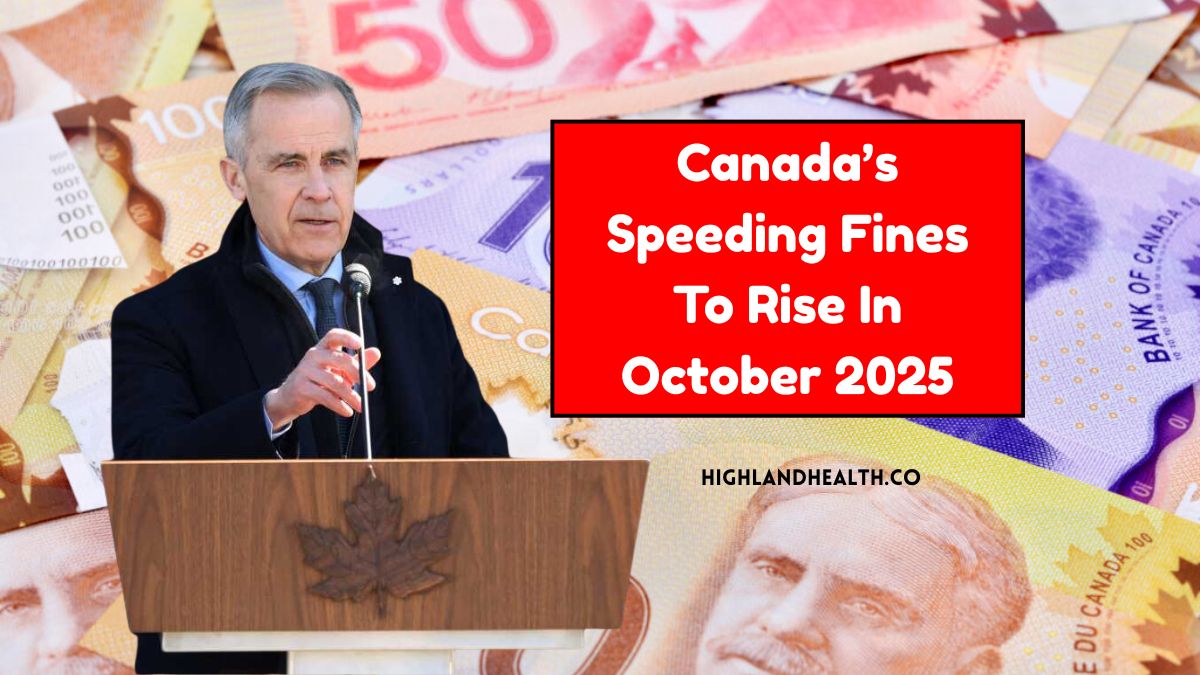Starting October 2025, Canadian drivers will face stricter speeding fines and tougher enforcement under a national safety initiative. These increased penalties are designed to reduce aggressive driving, align provincial laws, and address the growing rate of speed-related accidents.
Whether you drive in Ontario, Alberta, British Columbia, or Quebec, here’s everything you need to know about the Canada Speeding Fines Increase 2025 and how to prepare before the rules kick in.
Why the Speeding Fines Are Going Up
In the last five years, speed-related fatalities have surged by 17%, especially in urban areas. Authorities are responding with a combination of heavier fines, expanded enforcement, and real-time demerit tracking to deter repeat offenses.
What Are the New Speeding Fine Amounts?
As of October 2025, provinces are rolling out increased fines and new tools for enforcement. Here’s how the fines will change:
| Province | Current Max Fine | New Max Fine (Oct 2025) | New Enforcement Tools |
|---|---|---|---|
| Ontario | $10 per km/h | $14 per km/h | Tiered fines, scaling for repeat offenses |
| Alberta | $12 per km/h | $16 per km/h | On-the-spot license suspensions |
| British Columbia | $13 per km/h | $18 per km/h | Roadside camera expansion |
| Quebec | $15 per km/h | $20 per km/h | Doubled fines in school and safety zones |
Each province maintains its own traffic code, but all are expected to comply with the national directive by implementing harsher penalties.
Demerit Points and License Consequences
Alongside the fine increases, demerit point systems are being revised:
- Speeding 20 km/h over the limit may now incur 4 demerit points, up from the usual 2 or 3.
- Accumulating too many points (e.g., 8 or more in 12 months in Saskatchewan) may result in:
- Mandatory driving courses
- License suspension
- Higher insurance premiums
These demerit points are transferable across provinces, meaning your record in one region can affect your standing in another.
New Enforcement Strategies
Authorities are pairing these changes with expanded enforcement, including:
- Increased use of roadside cameras
- Real-time license plate scanning
- More traffic stops and mobile patrols
- Immediate suspensions for extreme speeding (50+ km/h over limit)
These initiatives are designed to provide both a financial and legal deterrent to reckless drivers.
Tips to Stay Compliant
To avoid penalties, drivers should:
- Check their province’s updated regulations online.
- Install apps that alert you to speed limits and active school zones.
- Take defensive driving courses, which may also help reduce demerit points.
- Keep your insurance provider updated, as infractions can increase premiums or lead to denied coverage.
The Canada Speeding Fines Increase in October 2025 is a decisive move toward safer roads. With hefty penalties, enhanced demerit tracking, and real-time enforcement tools, drivers need to be more cautious than ever.
Don’t wait until you get a ticket—start adjusting your habits now and stay informed through your province’s transport authority.
FAQs
When do the new speeding fines take effect in Canada?
The new penalties begin in October 2025 and will apply across all provinces, with local adjustments.
Can I reduce my demerit points after a speeding ticket?
Yes, in many provinces you can take a certified defensive driving course to reduce your point total. Check regional rules.
Will insurance premiums rise with the new fines?
Yes. Accumulating demerit points from speeding violations can lead to increased premiums or loss of coverage by some insurers.




